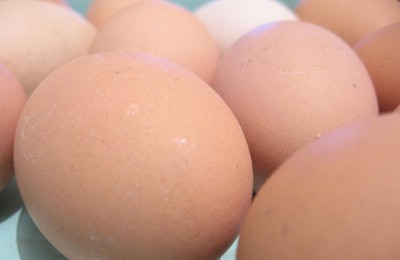
Scientists in Japan have genetically modified chickens to lay eggs containing drugs that have the potential to significantly reduce the cost of cancer treatments.
Few would dispute that there is a need for cheap and plentiful cancer drugs. Our feathered friends are probably not among the primary candidates to satisfy that need, but laying hens may, one day, play a significant role in helping to treat cancer if work being carried out in Japan proves to be a success.
Eggs may already have cemented their position as a good source of nutrition, and have an established history in vaccine production, but modified eggs being developed in Japan may prove to be a source of interferon beta protein, which can be used to treat a variety of illnesses, including cancer and multiple sclerosis.
Research using genetically-modified hens has been carried out jointly by country’s National Institute of Advanced Industrial Science and Technology (AIST), the National Agricultural and Food Research Organization and life sciences company Cosmo Bio.
Cheap and plentiful
Their findings are currently being written up for publication, and more research is needed, but it is hoped that their genetically modified chickens will produce interferon not only in large amounts, but the protein will be at least 90 percent cheaper than that delivered using current production methods.
Traditional methods of interferon production are slow and require strict quality control and must that be carried out in sterile facilities. Eggs, however, already offer that aseptic environment.
And given the speed at which a young hen reaches lay, how many eggs one hen produces and how quickly flocks can be developed, there is the possibility to quickly scale up the scientists’ work should it prove successful
The group initially tried to produce a modified egg protein by inserting the required genes into chicken chromosomes using a virus as a vector, however this was found to produce irregular results. Their new method, aims for more accurate and stable production by knocking in edited genes using the CRISP genome editing tool.
More research is needed, and it should be remembered that the Roslin Institute demonstrated interferon production in eggs using a virus vector over 10 years ago, and that chickens and eggs have been used to try to produce a variety of substances seen as beneficial to human health, with varying degrees of success.
However, if the protein produced in Japan clears safety trials, and is found to be the same as that which has already gone through clinical trials, there could be the possibility of starting with a few hens and then quickly scaling up into larger flocks.
The humble egg may not be seen as being quite so humble after all.


















